2025 Hall of Fame Inductees
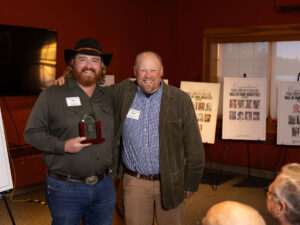
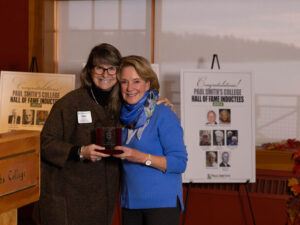
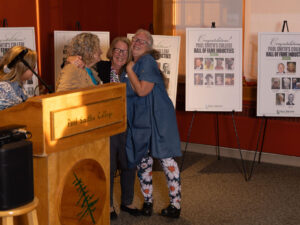
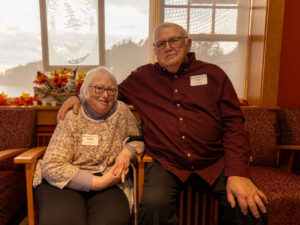
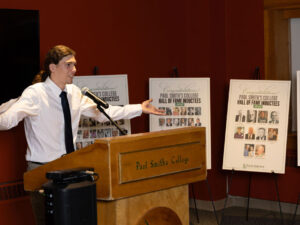
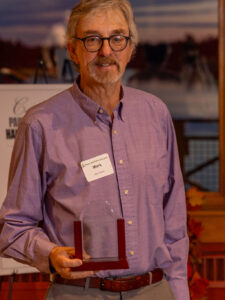
Hall of Fame 2025
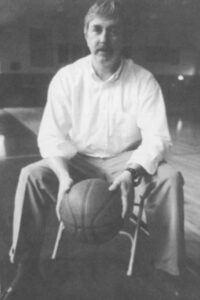
Mark Cartmill graduated from Canton High School in 1971 and St. Lawrence University in 1975. Received a Master’s Degree from Western Carolina University in 1983.
Prior to coming to PSC, Mark taught and coached basketball at Oxford Hills High School in Maine and at Tupper Lake High School. He was also the Assistant Athletic Director and Men’s Basketball Coach at the University of Maine at Augusta and the Athletic Director and Men’s Basketball Coach at the College of St. Joseph in Vermont. While at St. Joseph’s, he was named Vermont College Basketball Coach of the Year and inducted into its Athletic Hall of Fame in 2006.
In 1992, Mark had the opportunity to return to the north country and became the Athletic Director and Men’s Basketball coach at Paul Smith’s College. He oversaw the move from Junior College athletics to 4-year participation in the USCAA and the NAIA. As Athletic Director, he added Men’s Hockey (1999), Men’s Rugby (2000), Men’s and Women’s Cross Country (2003), Women’s Volleyball (2004), and the return of Men’s and Women’s Nordic Skiing (2006). The Men’s Basketball team averaged over 14 wins per season over 16 years, utilizing a fast-paced, aggressive style. Playing in a loud, packed, old Buxton Gymnasium provided a tremendous atmosphere. The teams had to switch to old Buxton after the main gymnasium was turned into the cafeteria!
In 2003, Mark was honored to receive the Saint Regian Yearbook Dedication. The Dedication simply said “He makes a difference.” Mark’s philosophy towards athletics was summed up in the yearbook quote “We do not compare ourselves to other colleges. We embrace our uniqueness and try to be the best we can become.” ‘Win at all costs’ is not our goal – real victory happens when sports work as part of the PSC experience and the student’s education overall.”
In 2008, Mark became the Director of Athletics at Berea College in Kentucky. During his 11 years there, he oversaw the change from NAIA to NCAA D3. He was able to overhaul all phases of the Athletic Department and raise the profile of athletics on campus. He retired in 2019 and moved to the mountains of North Carolina with his wife Lori.
Paul Smith’s College is a special place. My family was fortunate to live on campus for 10 years. What a place for kids to grow up! It was a privilege and honor to coach and mentor the student athletes at PSC!! Their dedication to their sport and work ethic was second to none! The relationships and memories built with all of the athletes, the PSC staff and faculty, and especially my Men’s Basketball teams will last a lifetime! Once a Smitty, always a Smitty! Go Bobcats!!

In 1986, Cheryl Culotta, Neil Surprenant, and John Radigan formed a Task Force to determine what Paul Smith’s College could do to better meet the needs of students with disabilities. Carol Lamb had just completed her 10th year teaching special education at LP Quinn Elementary School in Tupper Lake in a program that she initiated. Seeing the ad for a Learning Specialist at PSC sounded interesting and in August, Carol taught elementary summer school on a Friday and began a new position to provide services to college students the next Monday. That first semester, 28 young adults identified as a student with a disability in need of accommodation and the Center for Accommodative Services was born at PSC. In less than two years, the number of students had increased to over 80 and it became obvious that the Task Force’s foresight was correct.
By 1990, PSC had become a beacon of appropriate services for students with disabilities and Carol was assisting other colleges as they developed services. In addition, she was working with regional high school special education teachers and support personnel offering information on transitioning students with disabilities to college or the work force through the Recipe for College Success conferences and the You Hold the Keys to Your Success conferences in all five of the upstate BOCES regions.
The 21+ years that Carol was part of the PSC family were filled with colleagues and students that have become lifetime friends. She is very proud to be in touch with so many alumni and active in local activities with so many colleagues and alumni. Being inducted into the Paul Smith’s College Hall of Fame is humbling to her and a great honor.
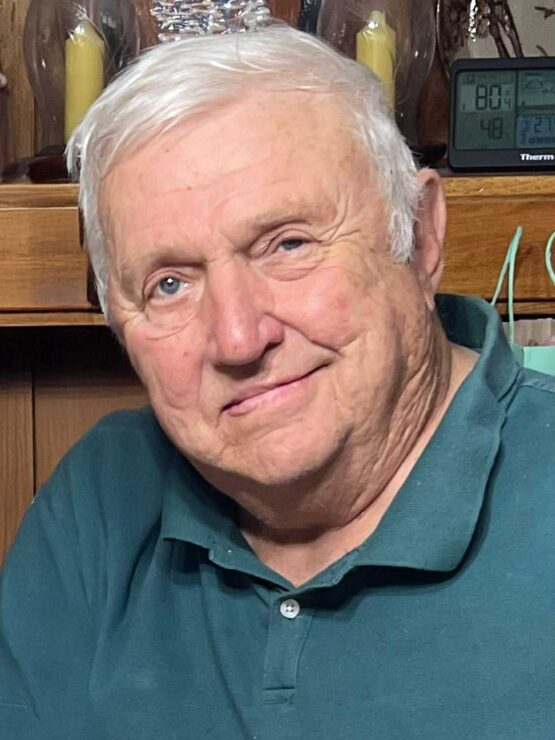
Frances “Fran” McAllister – Educator, Veteran, and Mentor
Fran McAllister, a beloved educator and forestry professional, was born and raised in Westford, Massachusetts. A proud Veteran of the United States Army Security Agency, Fran served his country from 1962 to 1965 before turning his focus toward education and natural resources.
He earned a master’s degree in Wood Science & Technology from the University of Massachusetts Amherst in 1972, where he was deeply influenced by his mentor, Professor R. Bruce Hoadley. It was Hoadley who first encouraged Fran to pursue a career in teaching, an encouragement that would help shape generations of students to come.
Fran’s professional journey included teaching at SUNY Morrisville and working as a forester for the City of Oneonta from 1978 to 1980. That same year, he joined the faculty at Paul Smith’s College, a place that would become his professional home for nearly three decades. From 1980 until his retirement in 2009, Fran was a cornerstone of the Paul Smith’s College community, known for his caring nature, hands-on teaching style, and unwavering dedication to student growth.
“Fran’s laughter, his desire to have fun while educating, and his obligation to fostering the development of students’ minds and abilities has added to the magic of Paul Smith’s College.”
Throughout his career, Fran was recognized many times by students, colleagues, alumni, and professional organizations for his outstanding contributions to forestry education and campus life. His honors include:
1987 – Signed copy of Understanding Wood by mentor R. Bruce Hoadley (Class of ’87 gift)
1995 – Chamberlain Teaching Excellence Award
1997 – Faculty Member of the Year, Alumni Association
1998 – PSC Distinguished Service Award
1998 – Urban Forestry Club Award: “For a man whose heart is bigger than his hands”
1999 – PSC Distinguished Service Award for Faculty & Staff
1999 – St. Regian Yearbook Recognition: “For his unending support of PSC”
2001 & 2004 – PSC Distinguished Faculty Awards
2006 – Northeastern Loggers Association Award for Outstanding Contribution to Forest Industry Education
Beyond his professional accomplishments, Fran is a devoted family man. Since marrying his wife, Cecilia, in the summer of 1977, the two have raised a loving family. He takes great pride in his children: Amanda (McAllister) Coyle and Dr. Alex McAllister (PSC Class of ’06) as well as in his three grandchildren: Summer, Casper, and Theo.
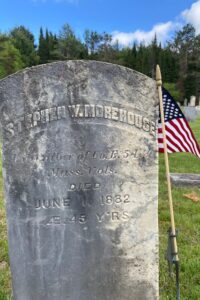
Stephen Warren Morehouse (ca. 1840–1882) was a wilderness guide, cook, and hotel worker at Apollos “Paul” Smith’s Adirondack hotel. He served in the 54th Massachusetts Infantry Regiment, one of the first Black regiments organized during the American Civil War.
Morehouse guided hunting trips with Apollos Smith in 1859. A memoir from a client of the hotel described a camping trip with Paul Smith for which Warren served as cook and hunter. In his own memoir, Rainbow Lake hotelier James Manchester Wardner reported that “Wash” Morehouse was also employed as a cook for summer camping trips from his own hotel.
In September 1863 Warren Morehouse was in Boston, Massachusetts, where he enlisted in the 54th Massachusetts Regiment Volunteer Infantry soon after its assault on Fort Wagner. Military documents described Warren as 20–21 years old, 5 feet 2 inches tall, and employed as waiter or laborer. Warren mustered in at Morris Island, South Carolina, on October 22, 1863.
In February 1864, the 54th joined a Union army advance from Jacksonville, Florida, toward Tallahassee that encountered unexpectedly strong resistance from Confederate forces on the outskirts of Olustee. According to Luis Fenellosa Emilio, one of the regiment’s officers, the 54th was called to battle in late afternoon to rescue the Union troops being overwhelmed by Confederate forces. Soldiers fled past them shouting “you’ll all get killed! Together with another black regiment, the 54th held off confederate forces while the White troops retreated. During the fighting, Emilio noted that “Warren Moorhouse of Company E” crept out ahead of the others as a sharpshooter. When night fell, the 54th withdrew under cover of darkness.
Later on, Warren took part in the Battle of Honey Hill and Potter’s Raid. During Potter’s Raid, Emilio mentions Warren’s service as a scout during action near Boykin, South Carolina. In August 1865, the regiment mustered out at Mount Pleasant, South Carolina, and in September marched through the streets of Boston to cheering crowds.
A copy of the Massachusetts 54th regimental muster role from 1865, recovered from the National Archives in Washington, DC, lists Warren Morehouse as a regimental marker. Regimental markers form at the ends of the battle line, together with the national colors in the middle of the ranks, the rest of the regiment could form around them. Usually assigned to sergeants, it is unusual that Warren Morehouse was assigned this duty while holding the rank of private.
Upon returning to the Adirondacks, Warren married Charlotte Ann Thomas (1849-1934), daughter of John Thomas Morris, in Brighton, New York, on October 21, 1866, and settled in Vermontville and worked as a “waitingman” at Sarah Hill’s inn on the south end of the hamlet, and a map of Vermontville published in 1876 indicated a “W. Morehouse” residence on Swinyer Road.
Warren died of dropsy on June 1, 1882, and was buried in Union Cemetery in Vermontville. The grave of Stephen Warren Morehouse at Union Cemetery, Vermontville, is honored with a Grand Army of the Republic marker. In 2007, a reunion of descendants of Warren and Charlotte Morehouse and other Black settlers of the Adirondacks took place in the Vermontville area. Warren Morehouse’s biography was summarized in “Dreaming of Timbuctoo,” a historical exhibit based at the John Brown Farm in North Elba, NY.
In 2024, the dining hall at Paul Smith’s College was named in honor of Warren and Helen Morehouse.
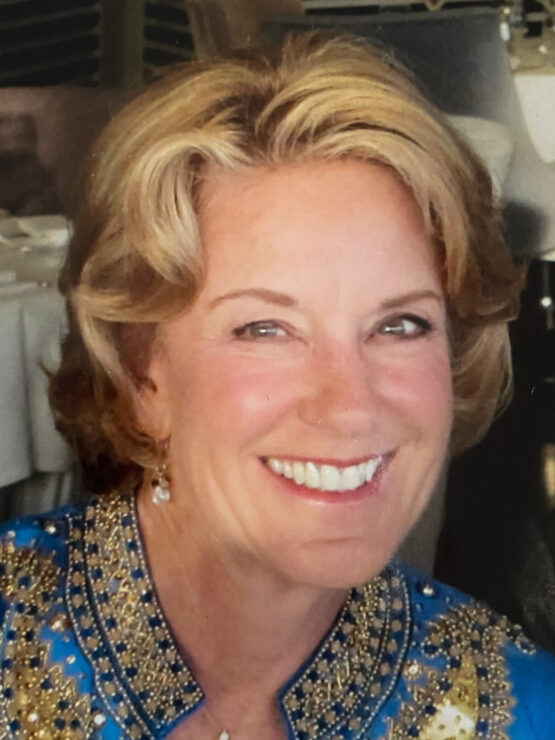
Kathy received her BA from Wells College and an MA from Columbia University. She has been a Trustee of Paul Smith’s College for two decades, following her father, Frank M. Hutchins whose dedication to fund-raising for the College during his tenure inspired her service. She, herself, brings a wealth of experience in fund-raising and strategic planning and currently serves as Vice Chair of the PSC Board and Chair of the Engagement Committee. Ms. Welling worked for many years as a consultant with Raybin Associates in New York City. She was recently President of the Board of Wilton Library in Connecticut and chaired its expansion project. She also served as Senior Warden of St. Matthew’s Church in Wilton, CT and chaired its facilities renovation. For more than a decade she has been a trustee of Horizons National (now on the Founder’s Council), serving low income children throughout the country. Currently she is Vice Chair of the Board of Spence Chapin in NYC, an organization for families and children focused on adoption. Last year she completed her service as a trustee of the Montshire Museum of Science, a children’s museum in VT. She serves as President of the Board of Upper Valley Haven in Vermont–a shelter, food shelf and resource center for people experiencing poverty. She is humbled by her election to the PSC Hall of Fame, following her father’s election to the first class.
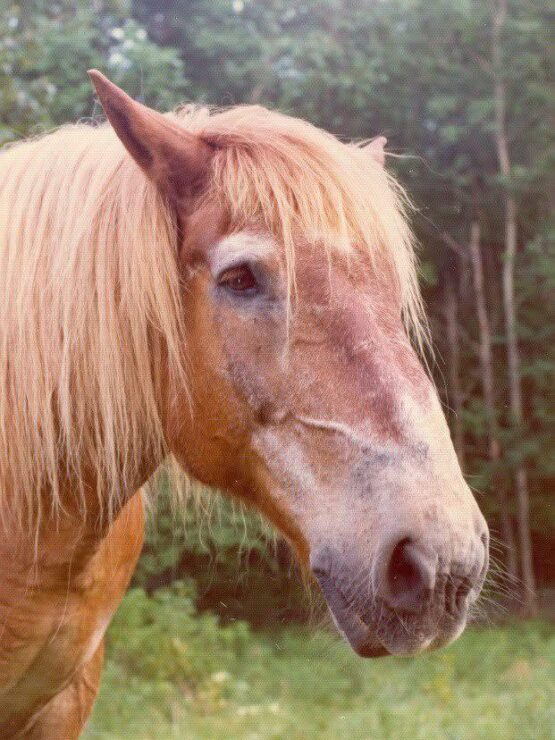
Horses have played a memorable role in the Forestry Department at Paul Smith’s College. Prince was the first horse used by the college’s Forestry Department. He was loaned to the college by Homer Tyler, a local resident and college employee. Prince served until his retirement in 1962.
Following Prince’s retirement, the college adopted Leo, a Belgian draft horse from a farm in Warrensburg, NY. Originally part of a team, Leo became available after the death of his teammate. The farm offered Leo to the college, and Professor Hoyt agreed to the adoption.
Leo was known for his gentle nature, so much so that he was transported from Warrensburg to the college, roughly a 100-mile journey, standing calmly in the open bed of a pickup truck without a trailer or cap.
In 1963, Leo the Logger began his work at Paul Smith’s College. He became a beloved and iconic member of the Forestry Division, working alongside students and faculty until his death in the winter of 1976.